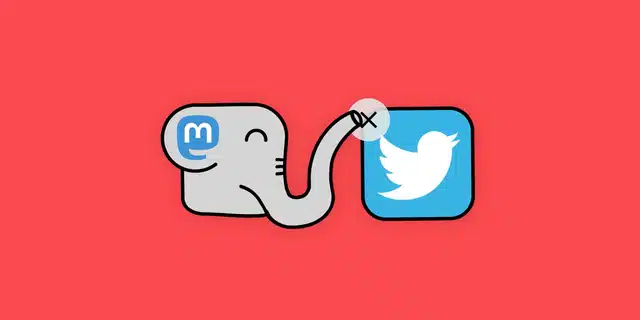The announcement ofpurchase of Twitter by Elon Musk has launched Mastodon to the attention of public opinion as a possible alternative social network, rapidly increasing its growth with over 30.000 new users in a single day.
A surprising result despite numbers that seem low, because Mastodon pursues the development of a decentralized and "ethical" global platform, without profit incentives. Quite a blow to those who think that our ability to communicate online should not be subject to the whims of a single commercial company, or even a single entity.

What is Mastodon in a nutshell
Mastodon is a social platform that hosts 500-character messages with images, polls, videos, and more to an audience of followers. It is used to communicate and obviously to follow interesting people.
The difference with Twitter and other social networks? There is no central Mastodon website: you sign up with a provider that will host the account. A bit like you can send an email with Gmail, or Virgilio, or other services. Anyone can become a supplier, because the platform is free and open source. It does not host advertising, respects privacy and allows people and communities to self-govern and regulate themselves.
If you are not comfortable with a Mastodon server, you can move to another server (and you can bring all your followers).
Why did the purchase of Twitter immediately make you think of Mastodon?

The history of this platform is emblematic. It all started in 2016, a turning point for social networks: LinkedIn had just been acquired by Microsoft and Twitter was in a serious crisis. The rumors about the possible purchase by IBM, Snapchat, Google, were racing. One of Twitter's loyal users was Eugene Rochko, the then 23-year-old creator of Mastodon: concerned that his favorite social network could “fall into bad hands” began to look into the decentralized social media space.
Mastodon was born of that exploration. And today, curiously, Rochko's fears have come true: a billionaire has bought Twitter and everyone is looking at his platform as a possible alternative.
What do you do now?
The sudden and unexpected success is putting a strain on the project's resources, given the non-profit nature of the German company. Mastodon's public servers (Mastodon.social and Mastodon.online) are literally under assault. Of course, there are already 2.400 different servers hosting the platform in the world, some even in Italy (we'll talk about it at the end of the article), but these two 'main' servers can serve as a safe haven for those who don't know which one else to sign up to.
In any case, this is still a "happy problem", if it is handled in the right way. And the Mastodon team is working to better accommodate this new 'exodus' of users tired of being spied on and censored everywhere. For the foreseeable future, the platform will implement other forms of end-to-end messaging (today there are no private messages between users) and other features such as groups.
In the meantime, you can contribute in many ways: financing the project, contributing to the code, asking the filmmakers for information or simply by signing up and participating.


